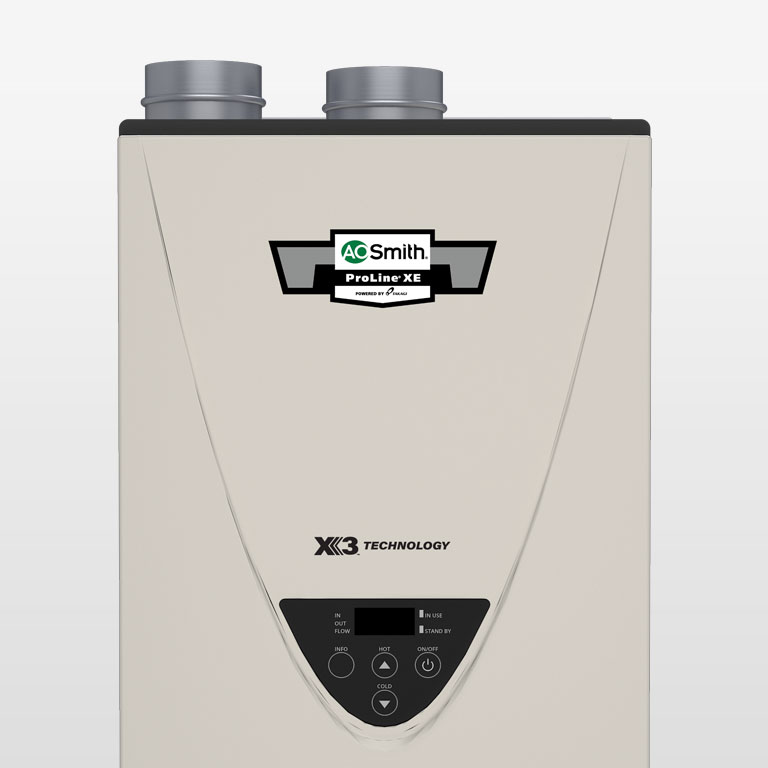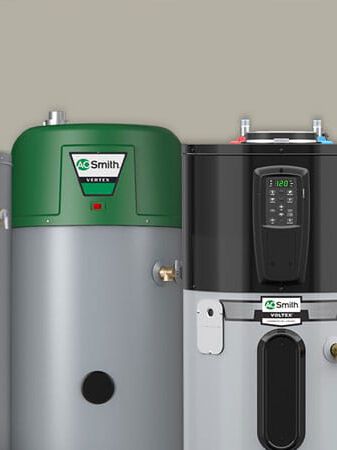
Choosing a New Appliance: Electric vs. Gas Water Heaters
Table of Contents
- Things to Consider
- Differences Between Gas and Electric Water Heaters
- Gas Water Heaters: Pros and Cons
- Electric Water Heaters: Pros and Cons
- Energy Infrastructure and Water Heater Selection
- Are Gas or Electric Water Heaters More Efficient?
- Thinking of Switching?
- Is My Water Heater Gas or Electric?
- How to Get the Right Water Heater for Your Needs
- Learn About Tankless Water Heaters
- Problems with Your Tankless Water Heater?
Getting a water heater for your home means making a significant investment in its infrastructure, whether you need one for a new construction project or to replace an old unit. This expense proves especially important when you're looking at an electric water heater vs. a gas model. More than just a matter of installation costs, however, utility expenses for each type of water heater vary considerably, as do the environmental consequences and your everyday comfort levels.
With that in mind, let's explore various considerations when choosing a gas vs. electric water heater, including technological advancements that make both solutions more cost-effective than ever.
Electric vs. Gas Water Heater Options: Things to Consider
Numerous factors come into play when debating gas vs. electric water heaters, and each one can influence your decision. Here, we explore the core differences between the two types and outline detailed comparisons so you have a better idea of what to expect when you purchase and install one or the other. This information spans the gamut from initial installation costs and energy-efficiency rates to nuances in operation and maintenance demands. Keep in mind that each type of unit has its own advantages and disadvantages, and understanding each one equips you to choose what works best for your home's — and family's — needs.
Differences Between Gas and Electric Water Heaters
How gas and electric units heat water is the main difference between the two types — electric water heaters use an electric circuit, while gas units use natural gas or propane. To be more specific, electrical units put electrical resistance elements to work, and gas models ignite a burner at the tank's bottom to heat water. These differences may not seem that important, but they actually influence operational costs, overall efficiency, the requirements for installation and how you maintain your water heater.
Gas Water Heaters: Pros and Cons
Understanding the advantages and disadvantages of using a gas water heater vs. electric models helps you make a better decision about the type you need in your home. Quick heating and off-the-grid convenience make gas units ideal in numerous situations, but their higher initial costs and a higher-maintenance design also play into figuring out which water heater is best for you.
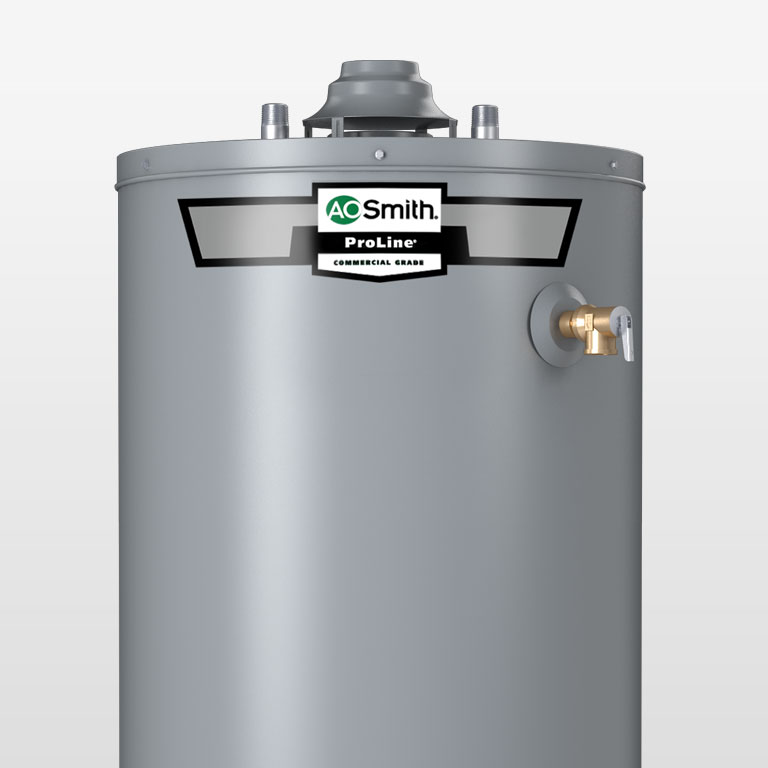
Pros of Gas Water Heaters
When choosing between gas vs. electric tankless water heater units or traditional tank options, gas models offer several key advantages. Let's take a look at the benefits provided by gas-powered water heater options.
Faster Than Electric
Renowned for their swift heating capabilities, gas water heaters generally deliver hot water faster than electric units. This rapid heating power helps busy households replenish hot water supplies quickly, making these units ideal for bigger families or homes that use higher amounts.
Works During Outages
Gas water heaters don't miss a beat when power outages occur because they don't rely on electricity for operation. This reliability makes units powered by natural gas and propane a great choice for areas that see lots of inclement weather so households can retain a ready supply of water in emergency situations like storms and blizzards.
Cons of Gas Water Heaters

Though notable benefits exist to owning a gas water heater, there are also some potential drawbacks. Let's explore aspects of these units that may be less than favorable so you can make an informed decision about purchasing.
Expensive Upfront Costs
Whether you're pondering a gas vs. electric water heater or a gas vs. electric tankless hot water heater, know that gas units usually have a higher initial installation cost. Even when the units have similar pricing, gas models almost always cost more due to the complexity of their installation, which often requires additional gas lines, ventilation systems and inspections to ensure the installation complies with safety standards.
High-Maintenance Designs
In general, a traditional electric water heater or electric tankless water heater has fewer maintenance requirements than a gas system. Gas models require regular inspections to check for gas line leaks and issues with ventilation systems. Other components like burners and pilot lights also need checking and cleaning to optimize their performance and ensure safe operation.
Electric Water Heaters: Pros and Cons
Electric water heaters confer multiple benefits over gas units, including ease of installation, higher efficiency levels and safer operation. On the flip side, they have their own unique challenges, like slower heating and vulnerability during power outages. Use this explanation of electric water heater pros and cons to figure out if these units are right for you.
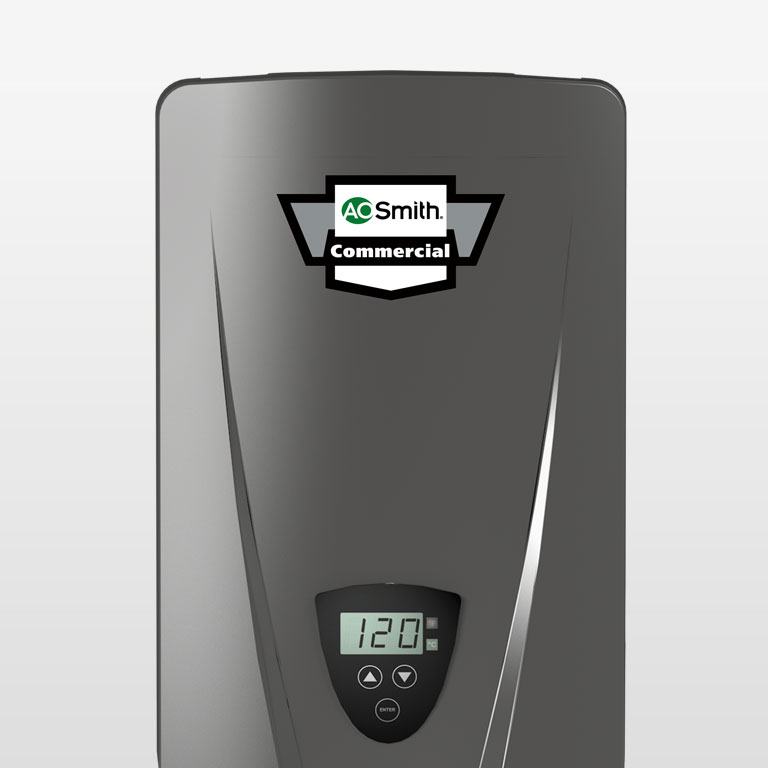
Pros of Electric Water Heaters
Electric water heaters offer distinct advantages with their simplicity, safety and convenience. Look at these benefits when you're considering purchasing an electric water heater or electric tankless water heater.
Lower Upfront Costs
Electric water heaters typically cost less to buy than their gas counterparts. Likewise, a simple, straightforward installation that doesn't require running lines or adding vents usually makes setting up an electric unit much less expensive.
Efficient Design
Electric water heaters convert nearly all the power they use to heat, reducing energy loss during operation. This efficient design may mean lower costs to operate the unit over time, especially if you live in an area with lower electricity rates.
Safe Operation
Electric water heaters don't burn fuel to generate heat like gas models, eliminating some of the major risks with the appliance. This means gas leaks and carbon monoxide aren't issues with an electric water heater or tankless electric water heater.
Simple to Deploy
No gas lines or vents to run means you can usually install electric water heaters in any space that they fit, as long as it has access to electricity. This makes them a great choice for areas where natural gas isn't available or homes without gas lines already in place.

Cons of Electric Water Heaters
Efficiency and ease of use make electric water heaters a great choice for most households. There are, however, some downsides and limitations to these popular units. Explore the drawbacks of electric water heaters to see if any of them may affect your home’s requirements.
Doesn’t Work During Power Outages
When blackouts and power outages occur, electric water heaters also shut down. In comparison, gas water heaters keep on heating your water, even when electric service fails, making them a better choice if you live in an area known for extended blackouts.
Slower Heating Times
While electric water heaters get the job of heating water done, they do it slower than their gas counterparts. Additionally, slower recovery times after using all the water in the tank may prove challenging in bigger households and those with higher hot water demands.
Energy Infrastructure and Water Heater Selection
The debate between an electric water heater vs. gas models often begins and ends with existing energy infrastructure in your home. If your home already has a gas line, getting a gas water heater may be a no-brainer — homes with an established gas supply typically find these options more convenient and cost-effective. Likewise, if your home only has electric energy infrastructure, an electric water heater serves as a straightforward solution that requires no additional setup.
Are Gas or Electric Water Heaters More Efficient?
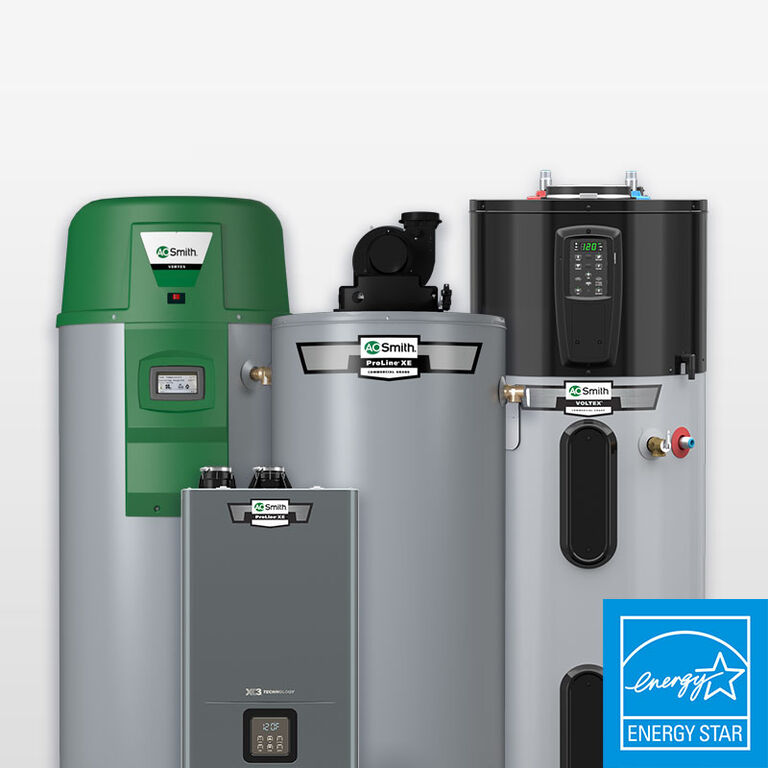
Efficiency affects your energy bills and your environmental footprint, making efficiency a huge factor when you’re deciding between a gas vs. electric water heater. It is determined by how well it converts energy into hot water and how much heat the appliance loses during the process.
Generally considered more efficient than gas models, electric water heaters and electric tankless water heaters convert almost all electricity used directly into heat with minimal loss for a higher Energy Factor (EF) rating. Gas water heaters, by contrast, lose some of their energy through venting, making them less efficient in terms of how well they use their primary energy source.
Keep in mind that efficiency doesn’t end there — the cost of local utilities plays into the cost-effectiveness of your choice. In areas where electricity costs more than gas, higher water heater efficiency may not translate into lower overall costs. Likewise, in areas with lower electricity rates, electric water heaters may lead to notable savings when your energy bill arrives.

Environmental concerns also matter when choosing between an electric vs. gas water heater. Electricity that comes from renewable resources like solar makes electric water heaters a more eco-friendly solution to your needs by contributing fewer carbon emissions than a gas water heater. However, electricity generated from fossil fuels often diminishes this environmental upside.
Your household’s hot water demands also influence your decision. Gas water heaters typically heat water faster and recover more quickly, providing a more robust supply than their electric counterparts. The speed at which hot water replenishes itself may matter significantly if you have a large household or use more hot water than the typical home.
To sum it up, choosing between gas and electric water heaters based on their efficiency involves numerous considerations. You may even find yourself pondering whether a gas vs. electric tankless water heater might be a better solution for your needs. By evaluating these concerns, you can better choose the water heater type that aligns with your priorities and the circumstances of your household.
Thinking of Switching?
Switching between gas and electric water heaters can be simple or complex, depending on which you already have and the energy infrastructure in your home. Before you commit, however, weigh the benefits and drawbacks of switching. While gas water heaters may offer faster heating times and continue working during power outages, if you don’t already have a gas line or venting system, you’re likely to incur large installation costs and higher maintenance requirements.
Conversely, if you want to switch from gas to an electric water heater, you’re likely to incur lower upfront costs and get safer, more efficient operation in return. Though these models are usually more energy efficient and environmentally friendly, they don’t heat water as fast as gas units or recover as quickly when you have high hot water demands. Also note that if you’re switching from gas to electric, your electric bills will go up as a result of the power supply shifting from one source to the other. If you have questions about switching, contact an A.O. Smith representative to get the support you need to make a more informed decision
The Age-Old Question: Is My Water Heater Gas or Electric?
Knowing whether your water heater is gas or electric matters immensely for maintaining the unit, troubleshooting issues and consideration of replacements or upgrades. With that in mind, gas water heaters usually have a vent pipe at the top that removes emissions from your home, a gas line connection and a pilot light that keeps gas flowing to the unit. Both of these things are sure signs that you have a gas-powered model.
On the flip side, electric water heaters don’t have these features, but they do have an electric cable or panel that connects to an outlet. These units also typically have access panels on the sides that let you easily get to heating elements.
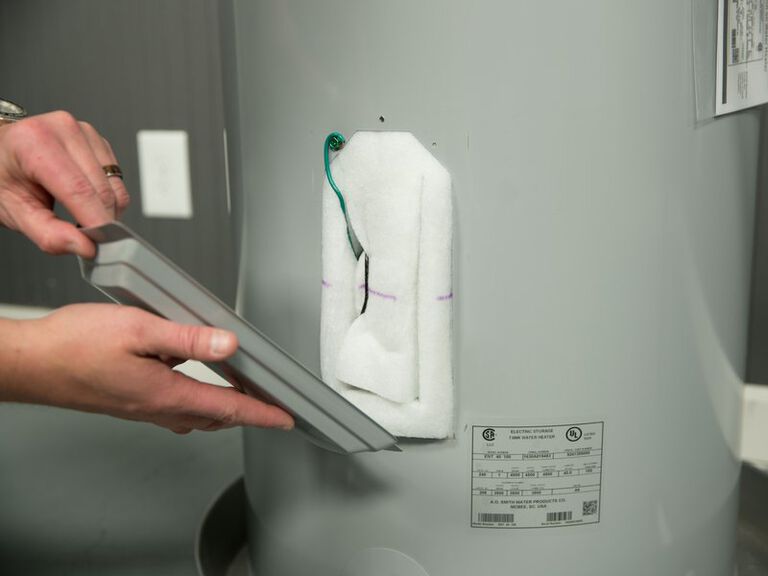
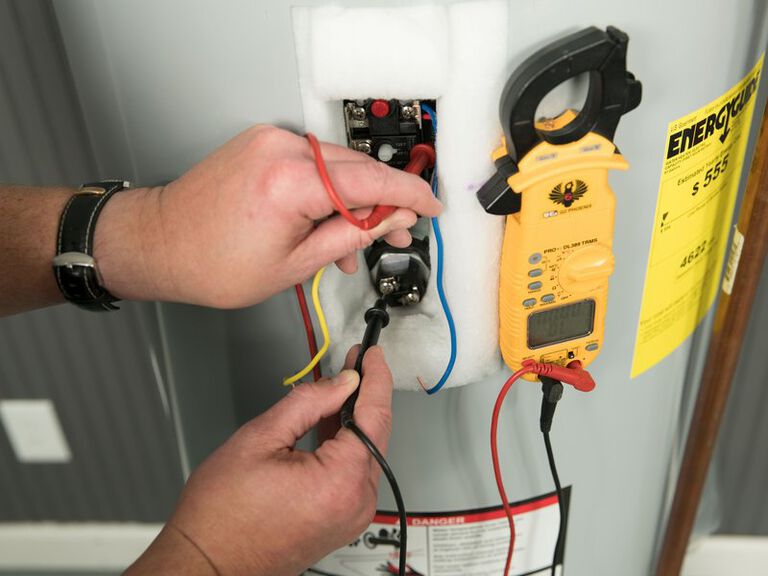
Learn About Tankless Water Heaters
Tankless water heaters can save you space and money while providing on-demand hot water right when you need it. No tanks or reservoirs mean you don't need a large area for installation, and these models come in gas and electric to suit the energy infrastructure of your home.
Gas Tankless Water Heaters
Explore gas tankless water heaters that operate via propane and natural gas. These compact units install easily in tight spaces and come in various sizes to suit your household needs.
Electric Tankless Water Heaters
Electric tankless water heaters offer easy installation almost anywhere you need them — all while saving you money on energy costs. These options require no venting or additional energy infrastructure for added convenience.
How to Get the Right Water Heater for Your Needs
To determine the right water heater for your home, make a thorough assessment of your hot water needs, the type of energy you use, your budget and the space you have available for the unit. First, look at how much hot water you use daily, including the number of people in your home, how often you need simultaneous access and the demands of your appliances. Next, consider if you already have gas lines run or just have electrical access.
After you’ve evaluated what you need, look at how much you have to spend on the water heater, both now and in the future. Consider EF ratings on different models and how those with better ratings may save you money in the long term. Likewise, look at where you need to install the water heater and figure out the unit size that fits there. If you’re not sure what you need after looking at all the factors, A.O. Smith can help with our water heater selector tool that helps you better gauge your home’s needs.
Problems with Your Tankless Water Heater?
If you're having issues with your tankless water heater, A.O. Smith offers excellent troubleshooting and support to get your hot water flowing again fast. Contact our representatives to get the help you need.
